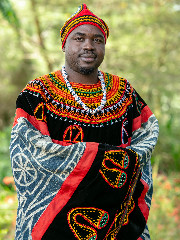
Presenter of 1 Presentation
SCHISTOSOMIASIS INDUCES PLASMA B CELL DEATH IN THE BONE MARROW AND ACCELERATES THE DECLINE OVER TIME OF HOST VACCINE RESPONSES (ID 1888)
Abstract
Abstract Body
Schistosomiasis is a debilitating parasitic disease that is most common in Sub-Saharan Africa. The disease has previously been shown to influence systemic immunity towards unrelated antigens such as vaccines. However, mechanisms behind the parasite’s impact on vaccine mounted long-term immunity are not fully understood. We investigated the impact of chronic Schistosoma mansoni infection on the efficacy of vaccine-induced immunity in school-aged Cameroonian children and laboratory mice. Our findings highlighted impaired maintenance of long-term anti-polio vaccine-specific serological immunity in both vaccinated children and mice. Using a mouse model of anti-viral vaccination, additional mechanistic evaluations demonstrated that chronic schistosomiasis caused vaccine-elicited immunity impairment through reduced survival of plasmablasts and antibody-producing plasma B cells in the bone marrow. Treatment with praziquantel partially reversed the impact of chronic schistosomiasis on serological immunity of both vaccinated children and mice, and plasma B cell populations in the bone marrow of mice. Our results, therefore, demonstrate the morbid impact and a potential mechanism thereof, of chronic schistosomiasis on immunological responses induced by anti-viral vaccination. Further, this study presents praziquantel treatment as a potential strategic tool to improve vaccination effectiveness through ameliorated sustainability post-vaccination in at-risk population groups in schistosomiasis endemic regions. These findings are timely for the informed rollout of antiviral COVID-19 vaccines in Schistosomiasis-infested countries.
